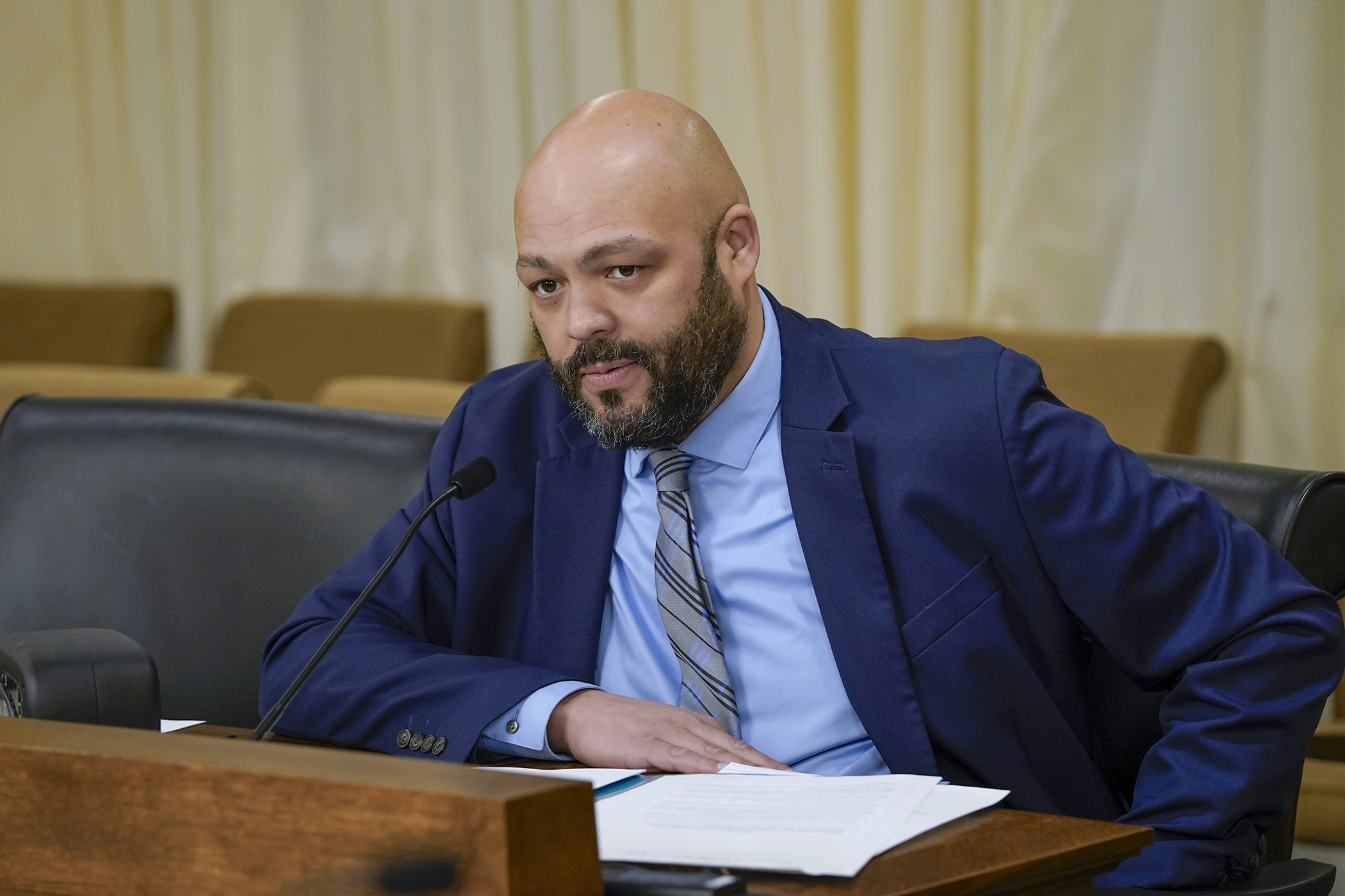Free speech concerns raised over MN civil rights data collection

A 2023 law gave the Department of Human Rights authority to collect and analyze civil rights trends, “including information compiled from community organizations that work directly with historically marginalized communities.”
The legislation charged the department with compiling incidents of civil rights violations, including verbal threats, and “prepare a report each biennium that recommends policy and system changes to reduce and prevent further civil rights incidents across Minnesota.”
Rep. Walter Hudson (R-Albertville) believes that power is too broad and can have a “chilling effect” on constitutionally protected free speech by identifying individuals who voice unpopular, but protected, speech.
He sponsors a bill to prohibit the department from collecting data or creating a database of incidents of protected speech, or from offering a reward for the reporting of incidents of protected speech.
“HF768 is designed to uphold protected speech by safeguarding individuals’ rights to freely express their own opinions without fear of government monitoring,” Hudson said.
The House Judiciary Finance and Civil Law Committee amended the bill Thursday and laid it over for future consideration.
Protected speech, as spelled out in the bill, includes the exercise of free speech under the constitution, the right to publish speech, to assemble or petition, and the right of association as guaranteed by the U.S. and state constitutions.
RaeAnna Lee, legislative and coalitions director at the Minnesota Americans for Prosperity, agreed the department’s efforts would have a chilling effect on protected speech.
“While addressing real threats and unlawful conduct is incredibly important, these databases repeatedly go beyond their intended purposes and they capture lawful speech fostering a climate of fear,” she said.
A letter from Human Rights Commissioner Rebecca Lucero states the proposed changes are “unnecessary” because any data collected by the department “is only aggregate data, with no private, confidential non-investigative data on any individual governed by the Minnesota Government Data Practices Act … and the Minnesota Human Rights Act.”
Democratic pushback
Democrats sided with the argument put forth by the department.
It’s important the department tracks trends in hate speech, said Rep. Leigh Finke (DFL-St. Paul), not to identify individual actors, but to prepare its biennial report to recommend policy and system changes to reduce and prevent further civil rights incidents in the state.
“I’m very interested in trends regarding threats of violence,” she said, adding that unchecked verbal threats create an atmosphere that empowers intolerance toward others that can lead to violence.
Rep. Tina Liebling (DFL-Rochester) said the bill is “way too broad” because it would prohibit cataloging any incident of protected speech either “directly or indirectly.”
She asserted the bill could have the unintended effect of preventing the department from collecting, for example, police reports of a civil rights violation that happened incidentally to include protected speech in them.
Related Articles
Search Session Daily
Advanced Search OptionsPriority Dailies
Speaker Emerita Melissa Hortman, husband killed in attack
By HPIS Staff House Speaker Emerita Melissa Hortman (DFL-Brooklyn Park) and her husband, Mark, were fatally shot in their home early Saturday morning.
Gov. Tim Walz announced the news dur...
House Speaker Emerita Melissa Hortman (DFL-Brooklyn Park) and her husband, Mark, were fatally shot in their home early Saturday morning.
Gov. Tim Walz announced the news dur...
Lawmakers deliver budget bills to governor's desk in one-day special session
By Mike Cook About that talk of needing all 21 hours left in a legislative day to complete a special session?
House members were more than up to the challenge Monday. Beginning at 10 a.m...
About that talk of needing all 21 hours left in a legislative day to complete a special session?
House members were more than up to the challenge Monday. Beginning at 10 a.m...